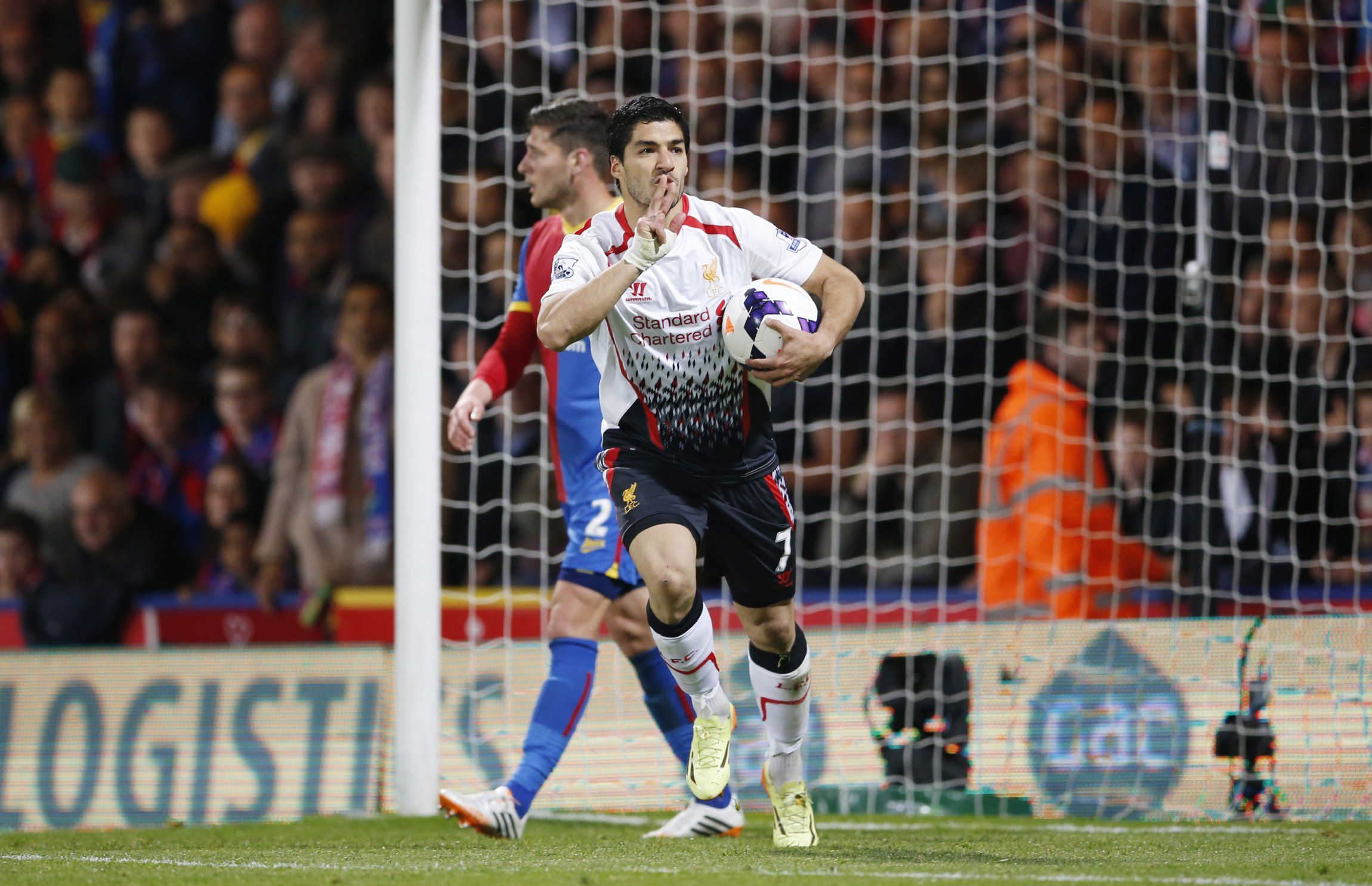When Liverpool took on Crystal Palace in the Premier League at Selhurst Park on May 5th 2014, the slip had happened.
Steven Gerrard had lost his balance and handed the initiative to Manchester City in the Premier League title race but the clash in south London gave them an opportunity to put things right, to steady the ship and pull themselves off the canvas and back into title contention.
A reminder of where we were prior to kick-off. There were two games left apiece and Liverpool and Manchester City each had 80 points, though the latter enjoyed a superior goal difference of nine. All four fixtures were against mid-table sides and this was the only one of the quartet that was away from Anfield or the Etihad.
A win was critical. A win was Brendan Rodgers’ base requirement. It would take the Reds three points clear and put serious pressure on their rival.
Only that goal difference picked and picked at their bravado and with the assumption that City would prevail against Aston Villa and West Ham coupled with a sincere belief based on recent experience that they could blow away sides, a victory was almost taken for granted. What Liverpool wanted was to score as close to ten as possible and eradicate City’s advantage in one fell swoop.
Isolation Busters: The only quiz you need to cure your boredem
World Class score: 95% | Expert score: 80% | Veteran score: 65% | Intermediate score: 45% | Amateur score: 30% | Try Again: 5%
By half time, chances had been missed but the away side were a goal to the good with Joe Allen cleverly finding space in the box and heading in a Gerrard corner. Eight minutes after the break their lead was doubled as Sturridge scuffed one home and when Suarez fired in his 31st of the season the impossible dream seemed slightly plausible.
“The game is won. Now it’s all about how many Liverpool can score,” the commentator intoned and judging by the Merseysider’s intent the answer could, potentially, have been 10. Liverpool attacked relentlessly, committing men forward at every opportunity as they desperately sought a fourth that could lead to a fifth and from there... Well, who knew?
Palace, though, under Tony Pulis, simply did not give up. It wasn’t in the manager’s nature and having steadied the ship in south London, he made a series of substitutions to capitalise on the wealth of space now appearing in his opponent’s back third.
With ten minutes to go Damien Delany blasted home a long-ranger from out of the blue and Liverpool frankly didn’t know what to do. Do they stick or twist? They furrowed on regardless. Two minutes later Dwight Gayle re-directed a low cross past Mignolet and the Liverpool defence went to panic stations. Three weeks earlier the team, club and fan-base were riding the crest of a wave. Seven days earlier they had been flattened by reality.
Now, having summoned up all of their bellicose belief again they were rocked, yet still ahead. Never before had a team so needed to find a central point of sense and reason.
With a schizophrenic strategy of holding on yet simultaneously ploughing forward perhaps it’s not surprising that Palace pulled off the shock of all shocks, leaving it until two minutes to go before Gayle struck again.
It was a twist that held the nation spellbound.
What happened next?
At the final whistle, Luis Suarez cried.
Manchester City duly went on to win their remaining two games to secure their second Premier League title. For Liverpool, their quest continued.
A point on the final day of the season was sufficient to secure 11th for the Eagles; a pleasing outcome considering they won only once from their opening eleven games.


